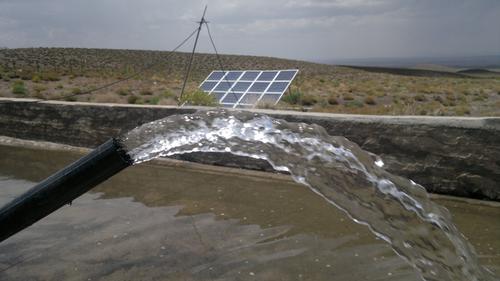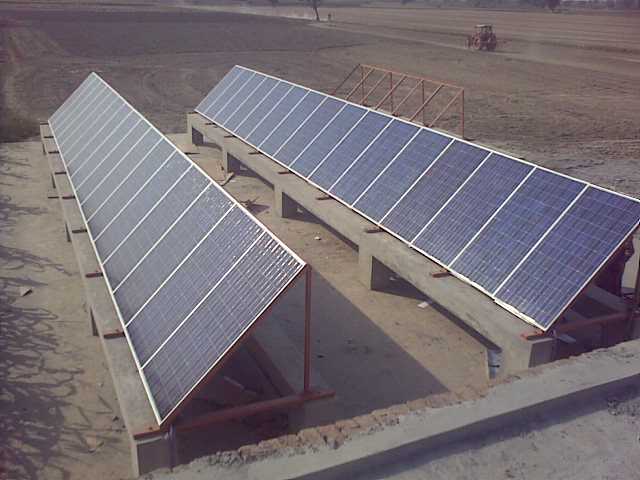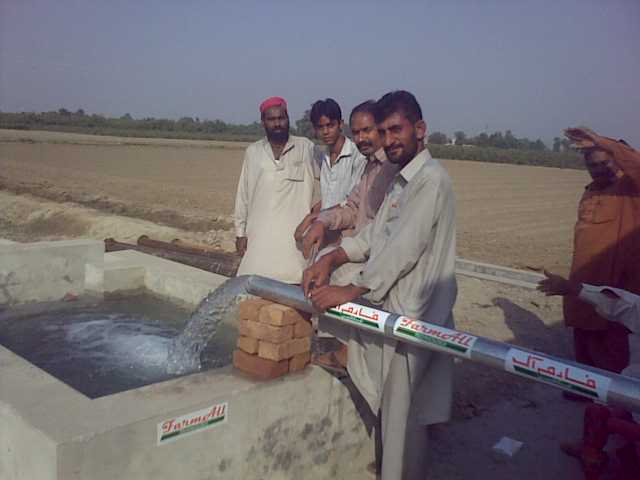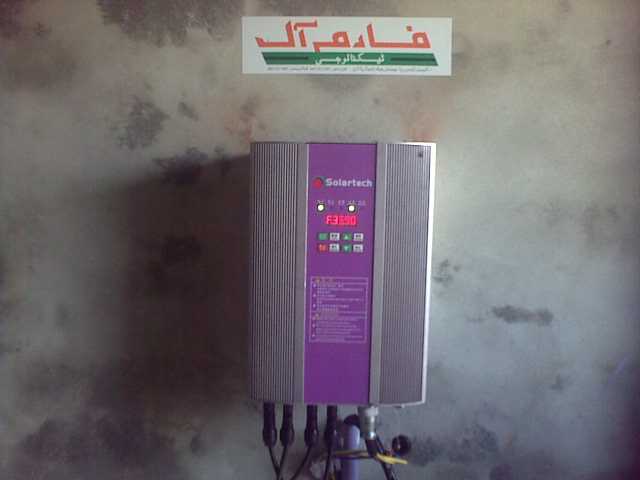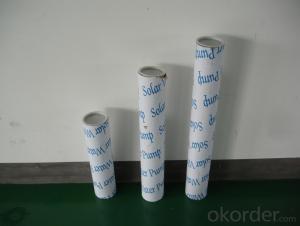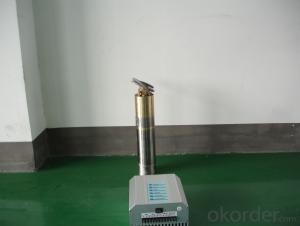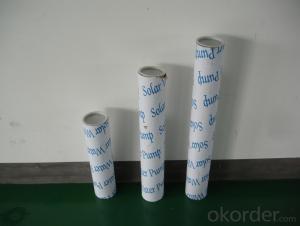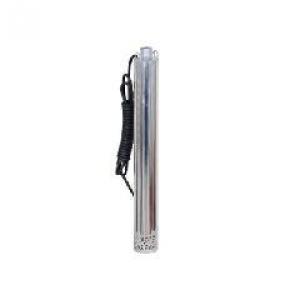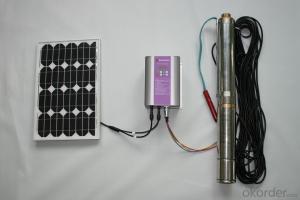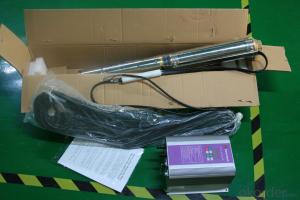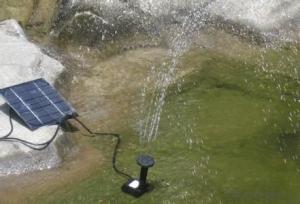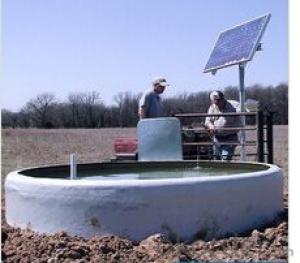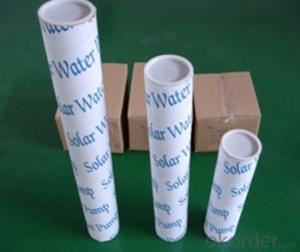AC Solar Pumping Systems
- Loading Port:
- Shekou
- Payment Terms:
- TT OR LC
- Min Order Qty:
- -
- Supply Capability:
- 100000000000000000000 pc/month
OKorder Service Pledge
OKorder Financial Service
You Might Also Like
Products
Solar Pumping System supplied by Shenzhen Solartech Renewable Energy Company(manufacturer) can be applied to daily use (ground water), agricultural irrigation, forestry irrigation, desert control, pasture animal husbandry, water supply for islands, wastewater treatment engineering, and so on. Solartech” Solar water pump System is dispensed with energy storing devices, and stores water instead of electricity. It improves the reliability of the device, at the same time, it lowers the construction and maintenance costs of the irrigation system dramatically.
In recent years, with the promotion of the utilization of new energy resources, Solar Pumping System is more and more used in municipal engineering, city centre squares, parks, tourist sites, resorts and hotels, the landscapes and fountain irrigation systems in the residential areas.
Technical Features
Optimization of Single Pump System
A single solar irrigation system consists of only one pump, a power -matched solar array and an inverter . The aim of optimization is to reduce the amount of PV modules as much as possible on the premise of filling the requirement of head and capacity. The rotational speed of pump is regulated according to the irradiation on the solar array; when the sunlight reaches its peak, the pump runs at the rated speed, and the output approaches the peak power of the solar array; when the sunlight is less abundant, the speed of pump varies bellow the range of the rated speed; when the speed as low as the capacity becomes zero, the solar pumping system stops working. So, there are big differences between solar irriation systems and traditional pumping systems in system design, and the system should be optimized according to the requirements of head, capacity, and local conditions of sunlight.
•Determine the optimal average daily operating time and the range of speed governing.
•Choose the optimal head and capacity of the pump.
•Determine the maximum power of PV modules, the best working voltage and method of connection.
Optimization of Multi-pump Systems:
There are several pumps in a multi-pump system. The pumps can be driven either by only one high-power inverter, or by several matching inverters. In the case of large capacity demand, the operation of the multi-pump system is more flexible. By switching solar arrays and pumps, all of the pumps run in MPPT mode when the sunlight is abundant, while some pumps will be shut down and all solar arrays supply power intensively for the rest running pumps when irradiation is weak. Based on the optimization of single pump system, the range of speed can be further optimized, and the photovoltaic(PV) pumping system always works with high efficiency.
Product Specifications
Model | Rated Power ( kW ) | Rated Voltage ( V ) | Head ( M ) | Daily Flow ( ㎥/ D ) |
PS370 | 0.37 | 220 | 20-47 | 20-1 |
PS550 | 0.55 | 220 | 15-70 | 40-1 |
PS750 | 0.75 | 220 | 6-81 | 100-1 |
PS1100 | 1.1 | 220 | 8-93 | 100-1 |
PS1500 | 1.5 | 220 | 7-128 | 130-1 |
PS2200 | 2.2 | 380 | 12-163 | 130-1 |
PS3000 | 3 | 380 | 9-187 | 250-10 |
PS4000 | 4 | 380 | 6-225 | 500-10 |
PS5500 | 5.5 | 380 | 10-172 | 500-20 |
PS7500 | 7.5 | 380 | 15-237 | 500-20 |
PS9200 | 9.2 | 380 | 20-140 | 500-40 |
PS11000 | 11 | 380 | 23-159 | 500-40 |
PS13000 | 13 | 380 | 27-189 | 500-40 |
PS15000 | 15 | 380 | 31-208 | 500-40 |
PS18500 | 18.5 | 380 | 39-143 | 500-100 |
PS22000 | 22 | 380 | 25-86 | 700-210 |
PS26000 | 26 | 380 | 30-105 | 700-210 |
PS30000 | 30 | 380 | 35-125 | 700-210 |
PS37000 | 37 | 380 | 40-150 | 700-210 |
PS45000 | 45 | 380 | 50-180 | 700-210 |
PS55000 | 55 | 380 | 65-200 | 700-210 |
- Q: Are solar pumps suitable for use in orchards?
- Yes, solar pumps are suitable for use in orchards. They provide a sustainable and cost-effective solution for irrigation, reducing reliance on fossil fuels and electricity. Solar pumps can effectively meet the watering needs of orchards while minimizing environmental impact.
- Q: Can a solar pump be used for water desalination?
- Indeed, water desalination can make use of a solar pump. By harnessing solar energy, these pumps are capable of converting sunlight into electrical energy, enabling them to function. Water desalination is the procedure wherein salt and other impurities are eliminated from seawater or brackish water, making it suitable for drinking or irrigation. Solar pumps can efficiently draw water from its source, such as the ocean, and direct it towards a desalination system. Solar pumps bring numerous benefits to water desalination. Firstly, they are environmentally friendly since they don't generate greenhouse gas emissions or rely on fossil fuels. As a result, they serve as a sustainable solution, particularly in regions with ample sunlight. Additionally, solar pumps prove to be cost-effective in the long run as they don't require fuel or electricity expenses once installed. Nevertheless, it is crucial to acknowledge that a solar pump alone cannot desalinate water. Its main function is solely to pump water into a desalination system. The desalination process usually involves either reverse osmosis or distillation, both of which demand energy to operate. Solar pumps can be seamlessly integrated into these desalination systems, allowing the solar energy generated by the pump to power the entire desalination process, thus establishing a self-sufficient and sustainable system. All in all, a solar pump can unquestionably be employed for water desalination, but it must be integrated with a desalination system that utilizes solar energy for the actual purification process. By combining these elements, a reliable and sustainable solution for producing clean and drinkable water from seawater or brackish water sources can be achieved.
- Q: Can a solar pump be used for water supply in a farm or agricultural land?
- Yes, a solar pump can be used for water supply in a farm or agricultural land. Solar pumps harness energy from the sun to power water pumps, allowing for a reliable and sustainable water supply for irrigation, livestock watering, and other agricultural needs. They are a cost-effective and environmentally friendly solution, especially in areas with limited access to electricity.
- Q: Can a solar pump be used in areas with limited access to water utilization?
- Yes, a solar pump can be used in areas with limited access to water utilization. Solar pumps are an efficient and sustainable solution for pumping water in remote locations where traditional electricity infrastructure is scarce or absent. They can be used to extract groundwater, irrigate farmland, provide drinking water, and support various water utilization needs in areas with limited access to water resources. The use of solar energy eliminates the need for grid electricity, making it a cost-effective and environmentally friendly option for pumping water in such areas.
- Q: How does the installation cost of a solar pump compare to a traditional electric pump?
- The installation cost of a solar pump is generally higher than that of a traditional electric pump. This is because solar pumps require additional components like solar panels, inverters, and batteries, which can add to the overall cost. However, it is important to note that solar pumps have lower operating costs and are more environmentally friendly in the long run, making them a cost-effective and sustainable choice.
- Q: Can a solar pump be used for water fountains or decorative purposes?
- Certainly, water fountains or decorative purposes can indeed make use of a solar pump. Solar pumps are designed specifically to harness solar energy for the operation of water pumps, thereby presenting a sustainable and eco-friendly choice for various applications, such as water fountains and decorative water features. These pumps typically consist of a solar panel that converts sunlight into electricity, which is then utilized to power the water pump. Depending on the specific requirements of the water fountain or decorative feature, the size and capacity of the solar pump may vary, but they generally offer ample water flow and pressure to create stunning water displays. Moreover, solar pumps possess the advantage of being self-sufficient, eliminating the need for external power sources, thus facilitating easy installation and maintenance.
- Q: Can a solar pump be used for irrigation of crops or gardens?
- Yes, the irrigation of crops or gardens can be achieved using a solar pump. These pumps are engineered to utilize the sun's energy to transfer water from a well or pond to the desired location. They prove to be particularly valuable in areas where electricity availability is limited or nonexistent. For farmers and gardeners, solar pumps offer a sustainable and economical alternative. They can cater to the irrigation needs of fields, orchards, vineyards, and gardens of all sizes. The solar panels convert sunlight into electricity, powering the pump to extract water from the source and distribute it accordingly. One of the notable advantages of employing solar pumps for irrigation is their low operational expenses. Since sunlight is abundant and free, once the system is installed, there are no costs associated with fuel or electricity required to run the pump. This makes solar pumps financially feasible, especially for individuals engaged in small-scale farming or gardening. Furthermore, solar pumps are environmentally friendly as they do not generate any greenhouse gas emissions while operating. They also diminish reliance on fossil fuels, contributing to a cleaner and more sustainable energy future. Solar pumps are available in a range of sizes and capacities, allowing for customization based on specific irrigation requirements for crops or gardens. They are designed to be resilient, dependable, and demand minimal maintenance. In conclusion, the utilization of solar pumps for crop or garden irrigation is indeed feasible. These pumps offer a sustainable and cost-effective solution, while simultaneously reducing environmental impact. With advancements in technology, solar pumps have become more efficient and reliable, making them an exceptional choice for irrigation purposes.
- Q: Can a solar pump be used for desalination or saltwater conversion?
- Desalination or saltwater conversion is indeed possible with the use of a solar pump. In fact, solar pumps are commonly employed alongside reverse osmosis (RO) systems to eliminate salt and other impurities from seawater or brackish water. The solar pump plays a crucial role in driving the RO process by supplying the necessary energy. This process involves pushing the saltwater through a semi-permeable membrane to separate the salts and produce fresh water. This method of desalination proves exceptionally beneficial in remote areas with limited access to electricity since the solar pump relies solely on solar energy, eliminating the requirement for a grid connection. Additionally, solar-powered desalination is an environmentally sustainable solution that reduces reliance on fossil fuels and minimizes greenhouse gas emissions.
- Q: Can solar pumps be used for water supply in recreational facilities or parks?
- Yes, solar pumps can be used for water supply in recreational facilities or parks. Solar pumps are a sustainable and cost-effective solution for providing water in remote areas or locations without access to electricity. They can efficiently pump water from wells, rivers, or lakes, making them ideal for supplying water for irrigation, fountains, pools, or other recreational purposes in parks and facilities. Additionally, solar pumps have low maintenance requirements and can operate silently, making them a suitable option for recreational areas.
- Q: Can a solar pump be used for hydroponics or greenhouse irrigation?
- Yes, a solar pump can be used for hydroponics or greenhouse irrigation. Solar pumps are a sustainable and cost-effective solution for providing water to plants in hydroponics systems or greenhouses. They harness energy from the sun to power the pump, eliminating the need for electricity or fuel. This makes them an environmentally friendly option, especially in remote areas where access to electricity may be limited. Additionally, solar pumps can be easily integrated into existing irrigation systems, ensuring efficient water distribution for optimal plant growth.
Send your message to us
AC Solar Pumping Systems
- Loading Port:
- Shekou
- Payment Terms:
- TT OR LC
- Min Order Qty:
- -
- Supply Capability:
- 100000000000000000000 pc/month
OKorder Service Pledge
OKorder Financial Service
Similar products
Hot products
Hot Searches
Related keywords






